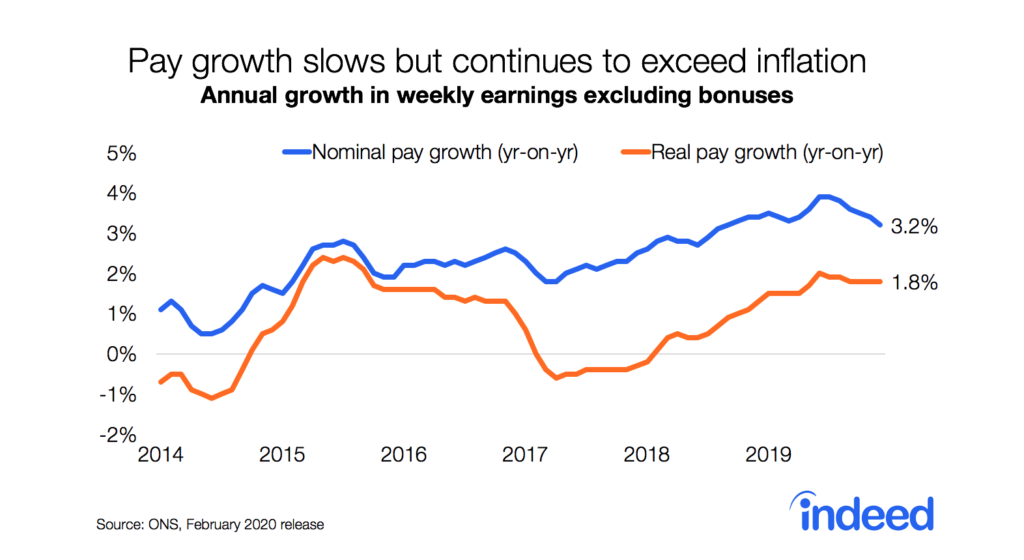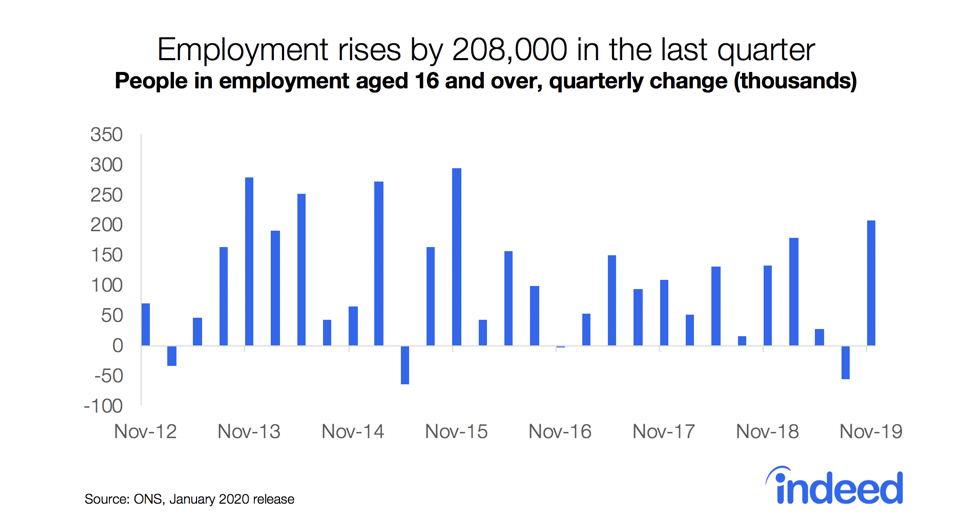At a time when controversies over migration feature so prominently in political debates, it is important to understand the factors impacting an individual’s decision whether or not to consider – and eventually take up – a job abroad.
We surveyed more than ten thousand workers in eight countries (United States of America, United Kingdom, Australia, Japan, France, Germany, The Netherlands and Ireland) who started a new job in the last year and asked them whether that new job required them to move to a different country, or if not, whether they had considered the possibility of moving to a new country for work.
The results provided us with a unique glimpse into their motivations. We found that work-related factors such as attractive job offers were the most relevant triggers for workers who had recently moved to a new country to start a new job: For 38.7% of the respondents that was the prime motivating factor.
People who did not move but considered doing so were more likely to justify their choice in terms of family or personal reasons — almost one-third indicated this factor as the main reason holding them back. People who did not even consider moving similarly signaled a strong personal preference for living in their current location.
Although the majority of people who moved had considered just one specific location, a sizable number of respondents reported that they considered alternative locations as well, especially in Europe, where 33% did so.
Let’s take a closer look at the survey results to learn more about what prompts people to consider and take up job opportunities abroad — and what prevents them from doing so.
Why Do People Move?
The majority of people who moved to another country were looking for a job in that specific location prior to their move. Between 15% and 30% of respondents were also considering other possibilities while a further 5-7% were not considering a move at all but ended up making one anyway — perhaps following a partner or family member.
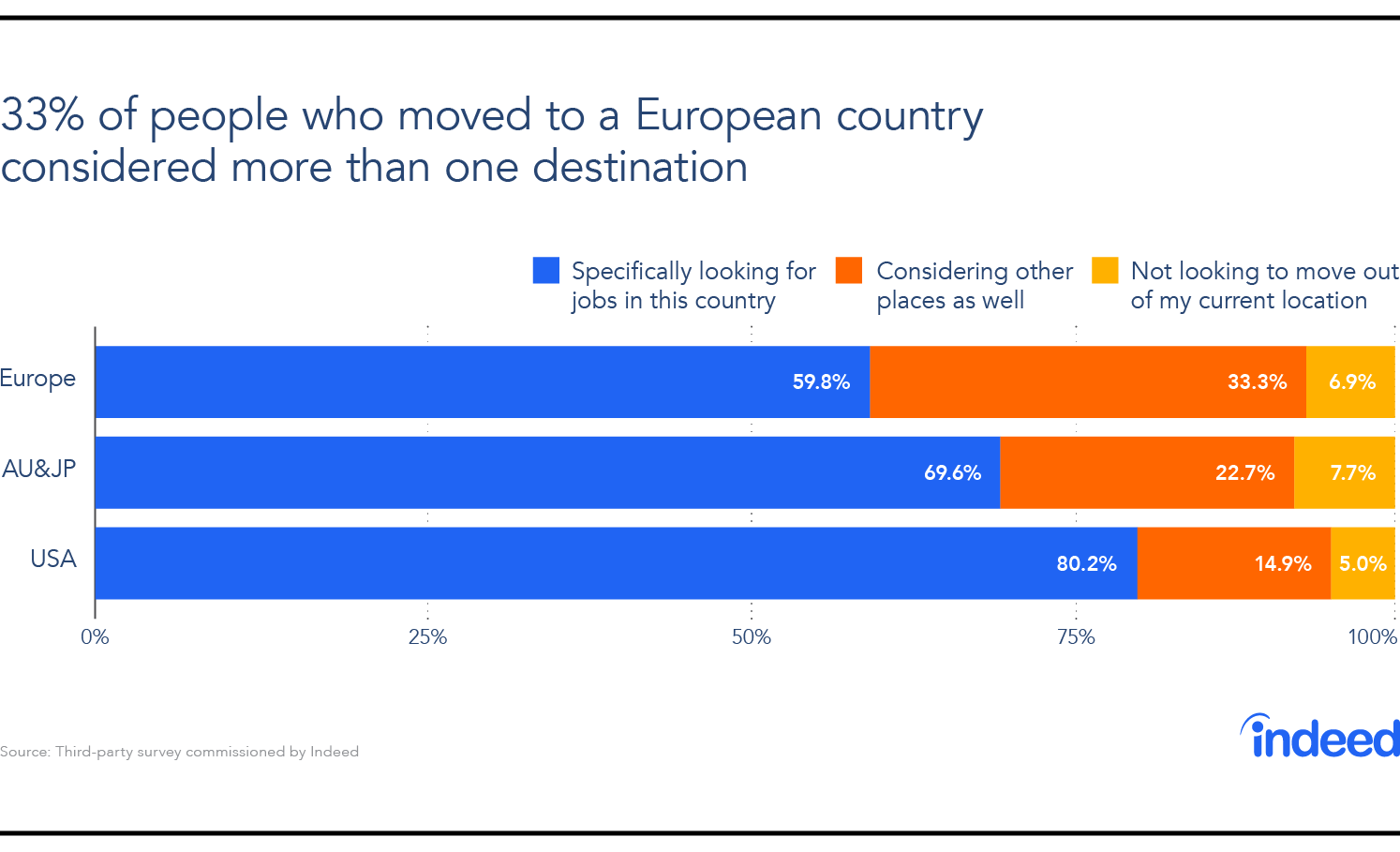
People who moved to the US were least interested in moving to other locations: 80.2% of respondents said they were looking specifically to move to America before they arrived.
By contrast, European destinations had the largest proportion of people who considered other possibilities. This is probably linked to the differences that exist between the two groups of movers, the biggest being the ease of intra-EU movement for citizens of EU countries.
Thanks to the freedom they have to settle anywhere within the EU, these individuals are more likely to consider more than one destination at a time — much like Americans can when considering a move to a different state.
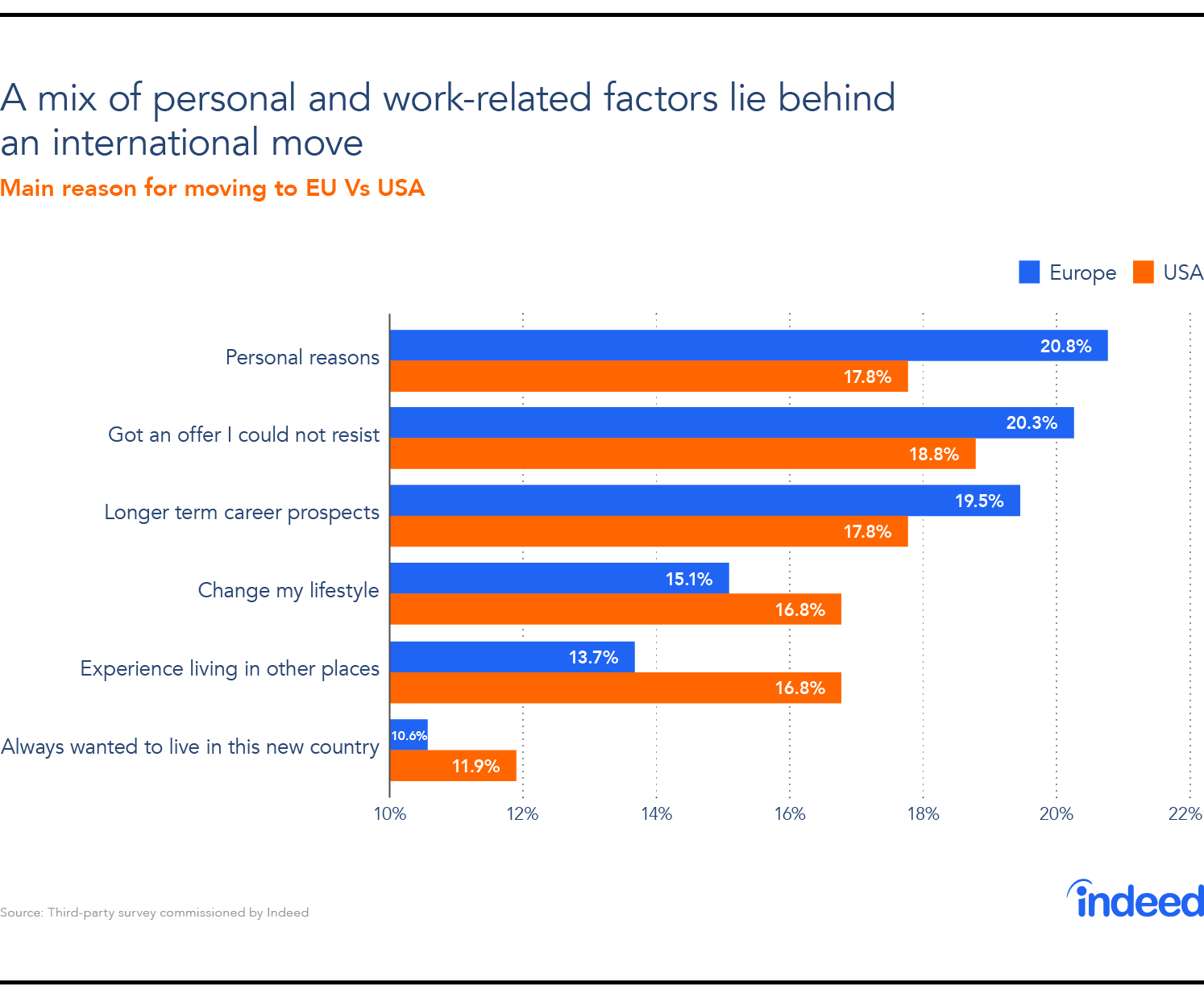
In terms of motivation, however, workers on both sides of the Atlantic showed some consistent patterns: Among the top reasons behind a decision to move to either Europe or the US were personal reasons, an attractive job offer and long-term career prospects.
While these factors were consistently important in both continents, the way they ranked across the two regions was somewhat different. For example, people who moved to the states pointed to an attractive job offer as the most important factor, while people bound for EU countries ranked personal reasons as a more significant determinant.
This shows that the top-level triggers behind the decisions of people to take a job in Europe or the US are an interesting mix of personal and work-related reasons. But when we dug into work-related reasons in more detail, we found that compensation aside, the factors that prompted people to pack and move to either side of the Atlantic showed even more differences.
Almost half of the people who ended up moving to one of the countries in Europe to enhance their long-term career prospects pointed to “better opportunities to broaden my skills” as the main reason behind their decision. On the other hand, 42% of people who relocated to the US for the same reason referred to their access to an existing network stateside they could rely and build on.
This could reflect differences in the immigration systems between the US and the European Union. As the movement of EU nationals within the borders of the Union is substantial, it is likely that people choosing European destinations are more able to pursue career development goals without worrying too much about visas, while people who consider moving to the US might often need family ties to qualify for certain types of visas.
When it came to reasons related to the availability of better jobs in alignment with a worker’s skill set however, we again found some similarities — this was among the top three reasons for workers who moved to either Europe or the US.
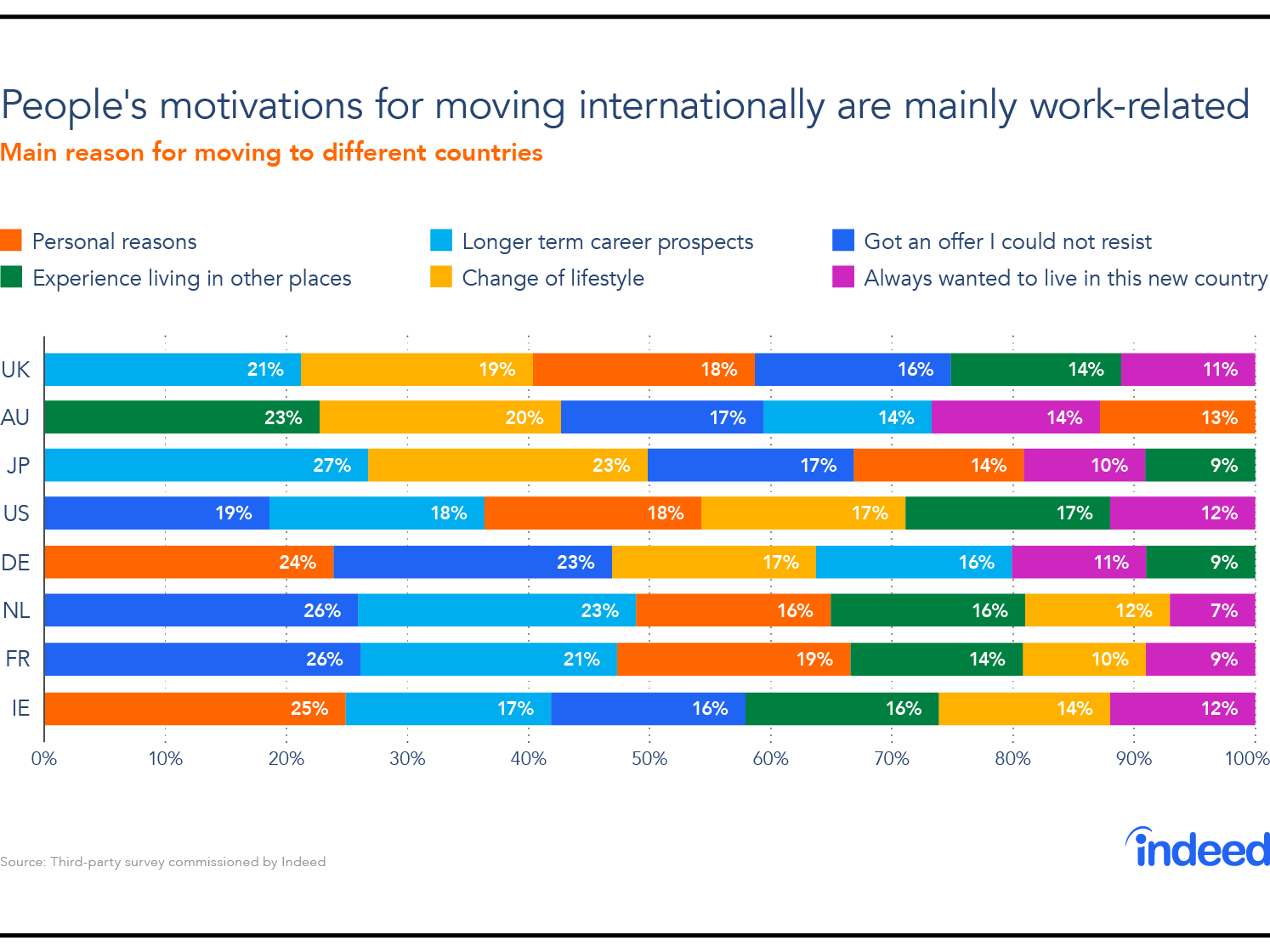
Looking at individual countries in more detail, we found that for workers who moved to the UK and Japan, long-term career prospects were the most important trigger. Newcomers to Germany and Ireland were mainly motivated by personal reasons, while workers who moved to either France or the Netherlands were motivated by attractive job offers.
Interestingly, people who moved to Australia were the only group for which the main reason for a move was linked to the experience of living in a new place followed by the desire for a change in lifestyle — although this was the second most important factor for workers who moved to both Japan and the UK.
Thus, although the reasons why people move vary across countries, job-related factors typically count for a great deal.
Why Some People Stay Put
Of the people who took up a new job in the past year but did not end up relocating to a new country, a sizable proportion had considered doing so.
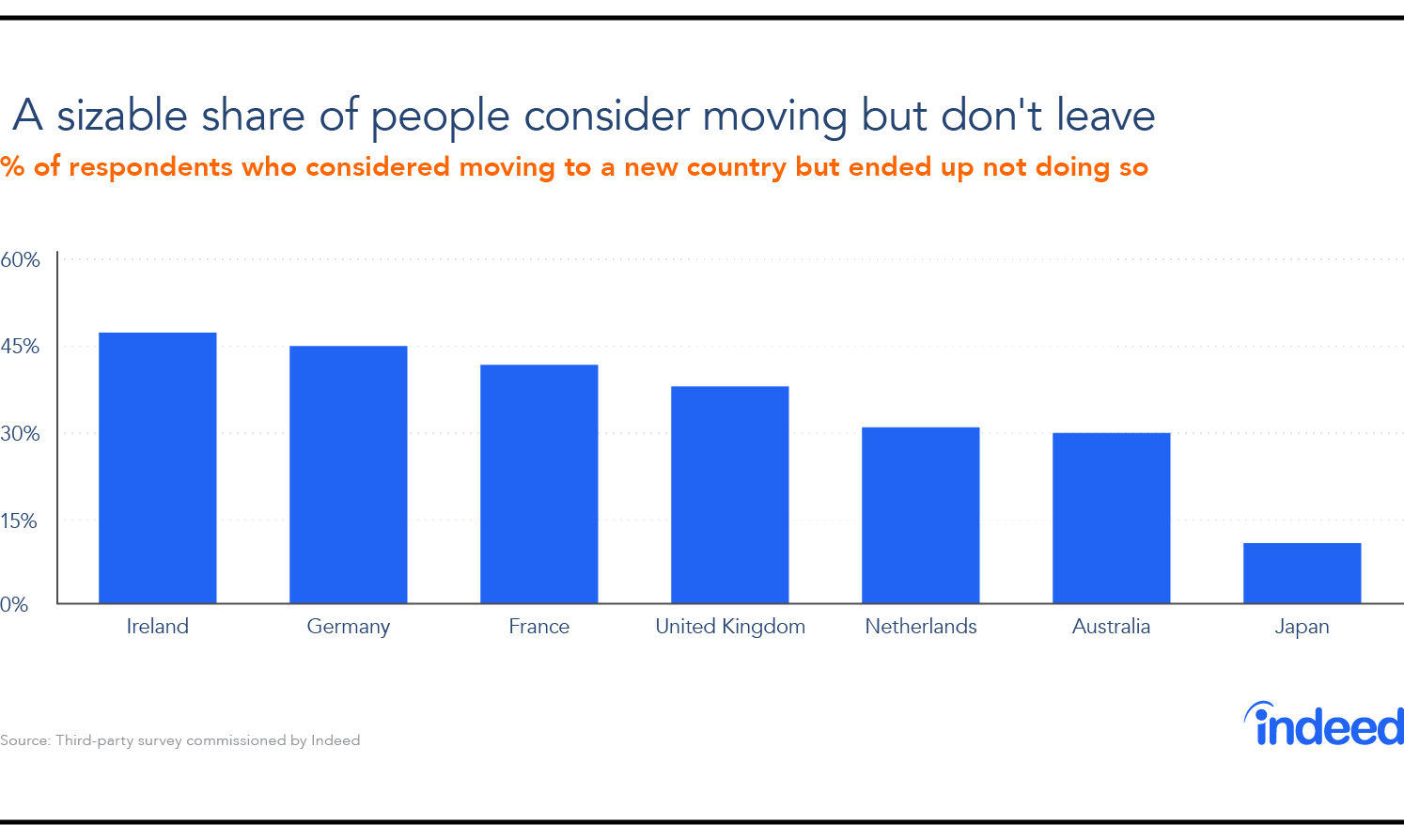
Looking at the combination of factors that held these individuals back from making a cross-country move – even if they considered it – a consistent mix of results stand out.
Across the board, respondents cited family and personal reasons as either the first or second most important factor in their decision not to move. Interestingly, while people who moved tended to point more to work-related motivations, people who did not move but considered it referred mainly to family and personal reasons.
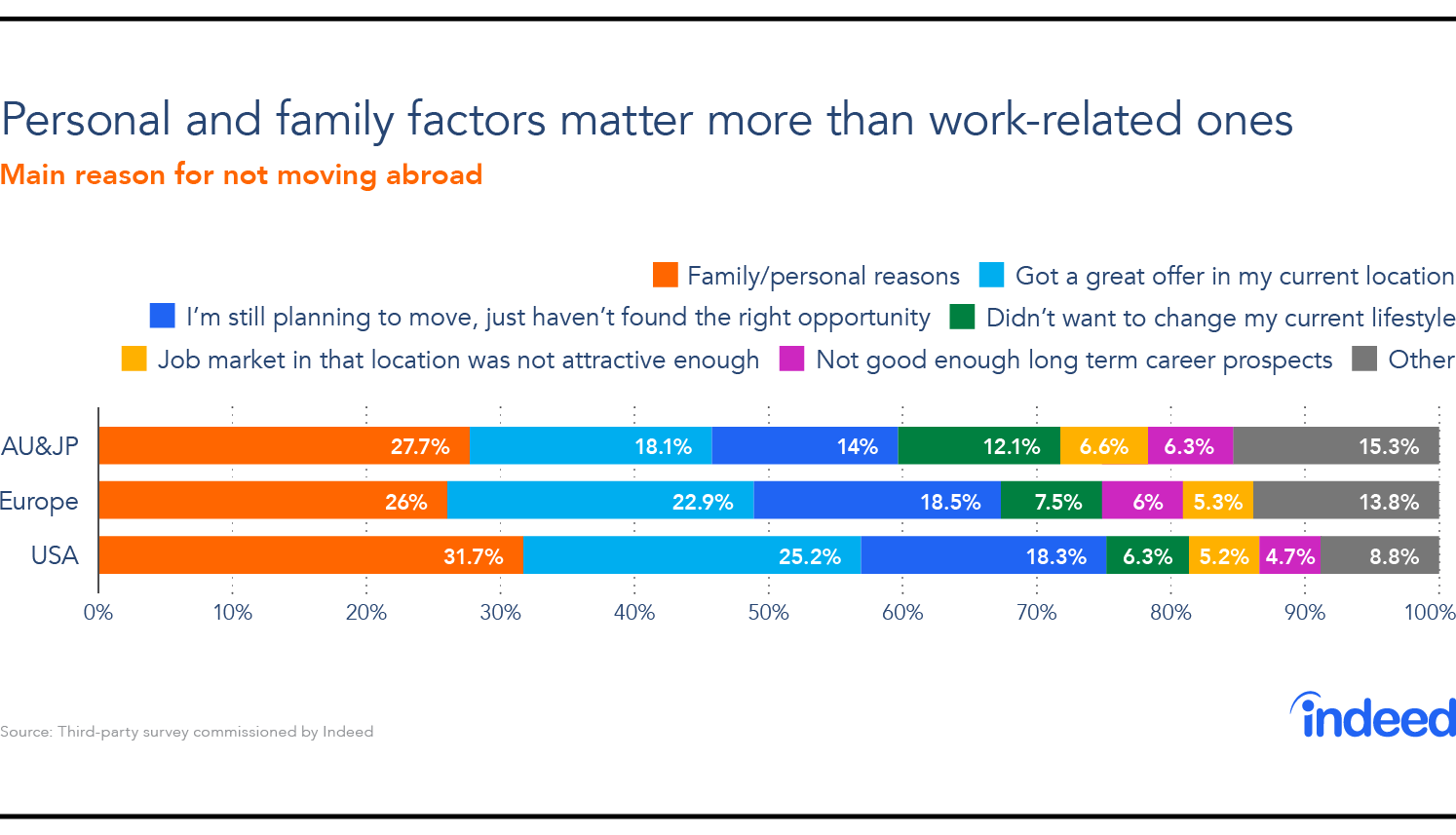
When we asked workers who did not even consider working in a different country, a similar picture emerged. Family and personal reasons were still very prominent and the responses also reflected personal preferences for living in their current location.
People surveyed cited their desire to continue living in their current country as the first or second most important reason why they did not even consider looking for a job abroad.
Japanese respondents were the only ones who did not consider this factor as important, but rather attributed their lack of interest in moving abroad to other personal factors, namely their adverse attitudes to lifestyle changes and the difficulties associated with moving to a foreign country more generally.
What Prompts People to Take (or Not Take) Up a Job Abroad?
It is clear that the decision whether to move abroad or not is rarely taken lightly, or for romantic reasons. Putting aside family or personal factors, people who move to another country or even just consider the possibility seem to be motivated by objective and pragmatic reasons linked to the attractiveness of jobs either at home or in the actual/potential destination.
On the other hand, people who consider moving but end up staying put are motivated by family and personal reasons more than by work-related ones. Similarly, people who do not even consider taking a job abroad cite comparable personal reasons for not doing so — they like where they currently live and would not consider moving.
However it is not the people who stay home that are fueling political debates. And since work plays such an important role in driving people to move overseas — and we cannot expect and nor would we desire that people stop moving for work reasons — the controversies surrounding this topic are not going to abate any time soon.
Notes:
1. See Methodology note for more details
2. In the US 48.8% of the respondents said that they considered moving to either a different country or state.
Methodology
The survey was run by a third-party firm on behalf of Indeed. The questionnaires in local language were administered online to samples of workers who changed job in the previous year in eight countries, namely United States of America, United Kingdom, Germany, Australia, Ireland, the Netherlands, Japan and France. The responses were collected between August 10th and November 9th 2016. Respondents were asked to report whether they did or did not move to a different country (or state, only for the US) in order to take up a new job in the previous year.
Overall 11.000 people were interviewed, of which 1039 reported that they made a move to one of the countries included in our sample from another country abroad to take up a job in the previous year.
[table id=3 /]
*This number includes people who moved from a different state.
Statistical significance:
Given the sample sizes of our survey, the differences between regions (i.e. Europe, United States of America, Australia and Japan) in the proportion of people who moved for a specific reason were mostly not statistically significant. On the other hand, almost half of the differences in the reasons of people who considered a move but ended up not moving were significant, while the majority of the differences in the reasons of people who did not consider moving were.





